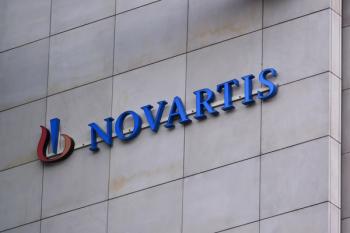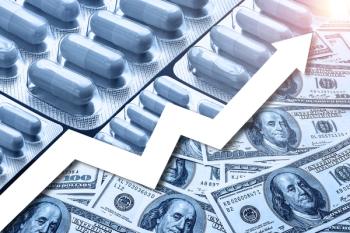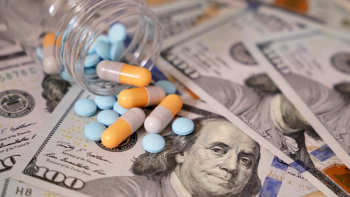
- Pharmaceutical Executive-10-01-2022
- Volume 42
- Issue 10
All About the Rates: The Fallout of Fed Hikes for Biotech
As fundamentals improve, potential rate plateau could ignite growth.
Rising interest rates are the enemy of long-dated assets as they put heavy downward pressure on valuations. As biotech is likely the longest dated of all asset classes, its valuations will run in an inverse direction to interest rates, which can explain part of the longest and steepest decline in the XBI since its inception.
So how bad is the interest rate environment?
Well, to put it in context for you, I have pulled some excerpts from a recent report from the best economist I know, Michael Darda, chief economist and market strategist at MKM Partners. Darda writes that as of the end of September, the real interest rate on the five-year TIPS security (a market-determined rate) has surged nearly 400 basis points (bps) from levels that prevailed late last year, the largest rise over a similar timeframe in the history of the TIPS market, dating back to the late 1990s. The surge has been precipitated by a dramatic repricing of terminal Fed policy rate expectations and the most rapid seven-month rise in policy rates in more than a generation.
The entire bear market this year can be explained by higher discount rates as the equity risk premium (the gap between earnings yields on stocks and bond yields) has actually moved lower—meaning the fall in equity valuations has been less dramatic than the fall in bond valuations. In order for equities to find their footing, bond rates will likely have to top and begin to pull back. Yet, this could also happen as a recession unfolds next year, which will create the risk of a secondary drop in the equity market as earnings estimates fall. So, the path to higher equity prices from here is likely via lower market interest rates.
According to SVB Securities, since the federal funds rate became the primary tool of monetary policy in 1982, there have been six periods with rate hikes of at least 2.00%. Never before has the Fed funds rate increased by 3.00% in just six months, as it has in this current period. In fact, when the hikes are finally over, this may be the fastest and steepest increase in rates ever (albeit from a low base).
The more than 17% surge in the S&P 500 from the June lows was also associated with a nearly 100 bps decline in the 10-year Treasury yield from mid-June until early August. In other words, to quote Darda, “this is still a rate-driven market.”
Interestingly, the biotech XBI index rose over 50% from the lows set in May to a recent high set in mid-August, but has since backed off by 17% as rates have continued to rise. Many of the fundamental factors that led to the collapse in the sector following its peak in February 2021 have improved, with data surprising to the upside, M&A picking up, and recent inflation metrics have come in lower than expected.
As I write this (late September), Biogen is trading up 36.5% (the equivalent of adding $10 billion in market cap), following the release of Phase III data for lecanemab, Eisai and Biogen’s follow-up Alzheimer’s drug to the botched Aduhelm launch. The drug candidate passed with flying colors on a test looking at memory, problem solving, and other dementia metrics.
Lecanemab, one of the most closely watched Alzheimer’s therapies in the clinic, met its primary goal on the CDR-SB (Clinical Dementia Rating-Sum of Boxes) in the study. Biogen is requesting approval in the US, EU, and Japan by next March 31. The experimental drug reduced clinical decline on the scale by 27% compared to placebo at 18 months. Umer Raffat, a senior managing director at Evercore ISI, called the trial results a “major surprise” in a note, and in its response to the news, the Alzheimer’s Association deemed the trial’s topline readout the “most encouraging results in clinical trials treating the underlying causes of Alzheimer’s to date.”
So, industry fundamentals remain strong; keep a watch on rates, as once the market prices in a plateauing in rates and perhaps a recession, investors may rotate quickly back into growth and biotech specifically.
Barbara Ryan is Founder, Barbara Ryan Advisors, and a member of Pharm Exec’s Editorial Advisory Board.
Articles in this issue
over 3 years ago
Healthy Planet, Healthy People: How Pharma Can Lead the Wayover 3 years ago
At the Heart of Pharma: ESG has Arrived as a Central Strategyover 3 years ago
Keeping it Simpleover 3 years ago
Exploring Fixed and Variable Coverage Principlesover 3 years ago
Inclusion Check-In: Who are You Giving Your Energy To?over 3 years ago
Cracking the Code to Commercial Promise in Asiaover 3 years ago
Push for Full Embrace of Digital Care Draws Opposition in Europeover 3 years ago
Seeking Harmonized Testing, Regulation, and Manufacturingover 3 years ago
R&D’s Financial FocusNewsletter
Lead with insight with the Pharmaceutical Executive newsletter, featuring strategic analysis, leadership trends, and market intelligence for biopharma decision-makers.




